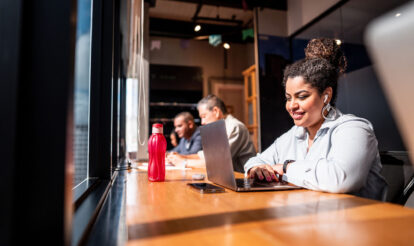
How to support wellbeing when you have a child with a learning difficulty
How to support wellbeing when you have a child with a learning difficulty

Stay positive
Positive thinking is like exercise, easier to do if you practise regularly; and if out the habit, hard to do at first. Staying in touch with others who are positive and supportive reduces negativity. Developing positive relationships with school, relatives, neighbours, even if they have been tricky, raises resilience. Change can represent excitement or stress; look for opportunity over threat when times are tough. Regularly remind yourself when you’ve managed things well and felt strong. If negative thoughts persist, challenge them: where’s the evidence? Recognise you are human; try could or maybe instead of should or must – flexibility reduces pressure. Simplify tasks where you can and focus on what you can control or do to avoid wasting energy. If things feel too much, take some time out.
Look after yourself
It’s easy to feel isolated and neglect yourself. Try to rest and sleep well; drink enough water and remember to eat healthily where possible; avoid overindulging food or alcohol as doing this will increase any negative thoughts. Exercise helps physically and emotionally. Where possible, get outdoors and see the sky in daylight. Life can take over any social life – making time with friends or making new ones can be done in person or online; which is especially important if you parent alone.
Ask for help
Asking for help is not a weakness or a sign you’re not coping. Being assertive may not be something that comes easy. Others may want to help, but uncertain how to help or when. No prizes are won for doing everything for everyone all of the time. Being clear and direct helps to achieve what you need and allows others around you to feel helpful and valued. Learning how to say no can be liberating and help build confidence. It doesn’t make you unhelpful, just self-assured.
Be organised
Developing routines and habits keeping you and others organised may seem like a chore in itself, but will save time, energy, and unnecessary stress. Prompts and reminders on a visual timetable or using your mobile phone can be helpful; however, if you need to, let it go. Everyone feels calmer when they know what’s happening and when. Breaking big tasks into smaller realistic ones to complete helps to avoid frustration if you run out of time. Mistakes are okay; getting frustrated, angry, and saying things you regret are part of being human. Acknowledge mistakes and forgive yourself to avoid inner guilt. Modelling how to do this helps your children learn how to move past difficulties.
Maintain relationships
Maintaining a relationship with a partner alongside family commitments can fall down a list of priorities. At times your relationship may feel like a tag team or good-cop, bad-cop. Paying attention, little and often, can make all the difference. Finding time to talk at the end of a day, sharing a highlight and lowlight. Checking in with each other and being heard encourages feelings of being valued and shared perspectives. Recognise you’re both different people doing things slightly differently with children, and that it doesn’t make one right or wrong; aim for consistency of approach, especially with house rules around behaviour. Play to strengths and try to share effective strategies. Relationships can be successful when partners’ needs are met. It doesn’t have to be all of them, but a balance of some. Make plans to have time together; can be just for a coffee or a walk in the park once a month if possible.
Laugh
Make time for laughter. Schedule a favourite movie, program, box set, podcast or comedian that tickles your funny bone. Laughter changes your brains chemistry and reduces tension.
Take time to relax
Relax? Do it! The word stress means too much or not enough stimulation. If you need to do more to feel relaxed; do things that you enjoy, e.g. gardening, cleaning out the cupboards, exercise. If you need less: bubble bath, quiet time, breathing, yoga, reading; whatever works for you. Being able to relax sometimes needs practise but it’s just as important as food and water. You need it to refuel your physical and emotional state to be ready for whatever comes next.
The wellbeing of children is a priority for every parent. Achievable if parents’ wellbeing is looked after also. Be kind to yourself and set yourself a goal.
Written by Tracy Dickens, Director of Therapeutic Services at a Neurodiversity Charity




